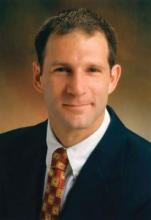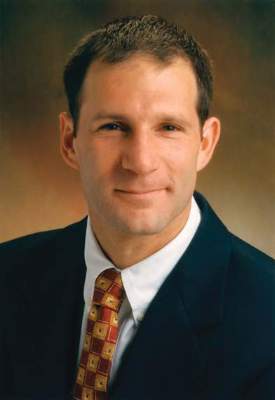User login
In the upcoming issue of Annals of Internal Medicine, there are two articles that highlight highly unprofessional and unethical behavior by physicians toward their female patients. I have read “Our Family Secrets” and “On Being a Doctor: Shining a Light in the Dark Side” multiple times and shared the stories with ob.gyn. residents, faculty, and medical students (Ann Intern Med. 2015 doi: 10.7326/M14-2168; doi: 10.7326/M15-1144). Thus, you may say that the mission of opening a dialogue on professionalism was accomplished.
My initial reactions remain unchanged. I am offended that the authors chose the pathway of shock value to illicit a visceral response. Though there is merit in the conversation, publishing two stories from the field of obstetrics and gynecology is irresponsible and inflammatory. I am certain that the editors could have taken additional time to identify similar stories from other fields that would have led to the same response.
Further, I would have expected the article to include the fact that those in women’s health are caring, compassionate, and empathic providers, and these examples represent extreme actions. No one in the field of women’s health would find these behaviors acceptable. To paint the field of obstetrics and gynecology with a broad stroke breaks down the relationship that we seek to foster with our internal medicine colleagues. Publishing such stories in Annals without seeking comment from the ob.gyn. community feels as if someone is talking behind my back.
I cannot stare at my pen and maintain my silence. I feel the need to take on the role of the ”anesthesiologist” portrayed in “Our Family Secrets” and respectfully request that we collaborate as professionals to create a culture of mutual respect, accountability, and understanding. The understanding that doctors are human, and that sometimes the stress of the responsibility provokes behavior that we would like to be forgiven for.
We should continue to work toward creating a medical community where such behaviors are never tolerated and medical students, nurses, residents, and colleagues feel safe to immediately put an end to all disrespectful actions.
I applaud Annals for addressing professionalism, respect, and personal accountability. Certainly, we should all strive to be better.
Dr. Jaspan is chairman of the department of obstetrics and gynecology, chief of gynecology, director of minimally invasive and pelvic surgery, and associate residency program director at the Einstein Medical Center in Philadelphia. He is an associate professor of obstetrics and gynecology at the Thomas Jefferson University, also in Philadelphia.
In the upcoming issue of Annals of Internal Medicine, there are two articles that highlight highly unprofessional and unethical behavior by physicians toward their female patients. I have read “Our Family Secrets” and “On Being a Doctor: Shining a Light in the Dark Side” multiple times and shared the stories with ob.gyn. residents, faculty, and medical students (Ann Intern Med. 2015 doi: 10.7326/M14-2168; doi: 10.7326/M15-1144). Thus, you may say that the mission of opening a dialogue on professionalism was accomplished.
My initial reactions remain unchanged. I am offended that the authors chose the pathway of shock value to illicit a visceral response. Though there is merit in the conversation, publishing two stories from the field of obstetrics and gynecology is irresponsible and inflammatory. I am certain that the editors could have taken additional time to identify similar stories from other fields that would have led to the same response.
Further, I would have expected the article to include the fact that those in women’s health are caring, compassionate, and empathic providers, and these examples represent extreme actions. No one in the field of women’s health would find these behaviors acceptable. To paint the field of obstetrics and gynecology with a broad stroke breaks down the relationship that we seek to foster with our internal medicine colleagues. Publishing such stories in Annals without seeking comment from the ob.gyn. community feels as if someone is talking behind my back.
I cannot stare at my pen and maintain my silence. I feel the need to take on the role of the ”anesthesiologist” portrayed in “Our Family Secrets” and respectfully request that we collaborate as professionals to create a culture of mutual respect, accountability, and understanding. The understanding that doctors are human, and that sometimes the stress of the responsibility provokes behavior that we would like to be forgiven for.
We should continue to work toward creating a medical community where such behaviors are never tolerated and medical students, nurses, residents, and colleagues feel safe to immediately put an end to all disrespectful actions.
I applaud Annals for addressing professionalism, respect, and personal accountability. Certainly, we should all strive to be better.
Dr. Jaspan is chairman of the department of obstetrics and gynecology, chief of gynecology, director of minimally invasive and pelvic surgery, and associate residency program director at the Einstein Medical Center in Philadelphia. He is an associate professor of obstetrics and gynecology at the Thomas Jefferson University, also in Philadelphia.
In the upcoming issue of Annals of Internal Medicine, there are two articles that highlight highly unprofessional and unethical behavior by physicians toward their female patients. I have read “Our Family Secrets” and “On Being a Doctor: Shining a Light in the Dark Side” multiple times and shared the stories with ob.gyn. residents, faculty, and medical students (Ann Intern Med. 2015 doi: 10.7326/M14-2168; doi: 10.7326/M15-1144). Thus, you may say that the mission of opening a dialogue on professionalism was accomplished.
My initial reactions remain unchanged. I am offended that the authors chose the pathway of shock value to illicit a visceral response. Though there is merit in the conversation, publishing two stories from the field of obstetrics and gynecology is irresponsible and inflammatory. I am certain that the editors could have taken additional time to identify similar stories from other fields that would have led to the same response.
Further, I would have expected the article to include the fact that those in women’s health are caring, compassionate, and empathic providers, and these examples represent extreme actions. No one in the field of women’s health would find these behaviors acceptable. To paint the field of obstetrics and gynecology with a broad stroke breaks down the relationship that we seek to foster with our internal medicine colleagues. Publishing such stories in Annals without seeking comment from the ob.gyn. community feels as if someone is talking behind my back.
I cannot stare at my pen and maintain my silence. I feel the need to take on the role of the ”anesthesiologist” portrayed in “Our Family Secrets” and respectfully request that we collaborate as professionals to create a culture of mutual respect, accountability, and understanding. The understanding that doctors are human, and that sometimes the stress of the responsibility provokes behavior that we would like to be forgiven for.
We should continue to work toward creating a medical community where such behaviors are never tolerated and medical students, nurses, residents, and colleagues feel safe to immediately put an end to all disrespectful actions.
I applaud Annals for addressing professionalism, respect, and personal accountability. Certainly, we should all strive to be better.
Dr. Jaspan is chairman of the department of obstetrics and gynecology, chief of gynecology, director of minimally invasive and pelvic surgery, and associate residency program director at the Einstein Medical Center in Philadelphia. He is an associate professor of obstetrics and gynecology at the Thomas Jefferson University, also in Philadelphia.

